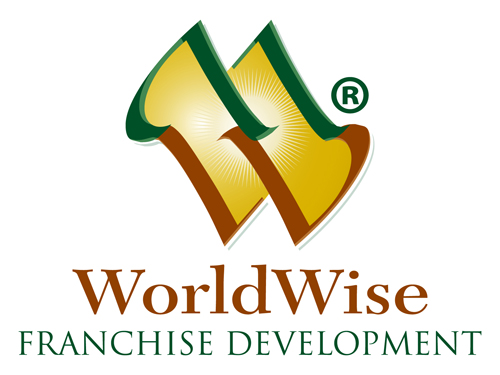Why Do Franchisees Self Destruct?
Author Richard Solomon is a Franchise Lawyer with 50 years of experience in business development, antitrust and franchise law, management counseling and dispute resolution including trials and crisis management.
Whenever you run across horror stories about franchisor abuse, a careful parsing of the fact history of the situation usually shows that there is plenty of blame to go around. Really serious problems are hardly ever the sole and exclusive fault of one side. Life rarely works that way.
There are at least two choke points in the relationship at which serious problems can be avoided, but at which the franchisees are usually unwilling to spend the money to get it sorted out properly. But the money it would cost to be competently informed and forearmed is always so much less that the consequences of being inadequately informed.
Illustratively, most franchise investors consider “review” of the FDD to constitute competent due diligence, maybe also coupled with talking to some existing franchisees. The reason that is absolutely absurd is that it does not enable corroboration of what has been said on Discovery Day, in the FDD and in “other publications” carrying positive stories about (just about all of which are planted by the franchisor). If you leave the pre investment due diligence without corroboration of the financial risks and probabilities you have not done real pre investment due diligence. It makes absolutely no difference that your may have an MBA degree or that you may have been a company “executive” for 25 years. If you don’t know how to find and quantify the risks and corroborate what you were told, you might as well be a 12 year old. Some franchisors make unreliable claims specifically because they believe they are dealing with a 12 year old mentality who will not find the truth.
Most would be franchisees go to some lawyer who offers to “read” the papers for some absurd small fee (often as low as $1,000). A lawyer who knows how to do the legal risk vetting AND the financial risk vetting, and who can save you from a loss of your total investment plus ongoing contract liability is worth the difference between that $1,000 and a real fee for the work to be done (usually from $3,000 to $5,000 depending upon the size/scope of the deal being vetted). But, incapable of appreciating comparative value, these folks usually decide whom to retain based upon comparative cost. If you lack the intelligence to appreciate value and appreciate only the cost, and then you risk upwards of a million dollars to save a few thousand, you usually have no one to blame but yourself for the disaster.
By way of illustration, thousands have invested in franchises that are so bad that it is impossible ever to accumulate any capital value whatsoever. No matter what the franchise agreement may say, they never have anything to sell. The franchised business, for several easily observable reasons, never has any positive asset value. They have simply bought a job masquerading as a franchise investment. These FranWhacks (www.FranWhack.com) have in almost every instance been “vetted” by some lawyer who “read the papers”, but with no business model comprehension.
Competent franchise pre investment due diligence is much more than “reading” the papers. It is therefore worth much more.
The second choke point in franchisee self-destruction is relationship operationality. If you lack a competent appreciation of what you are entitled to under your franchise agreement and what you are obligated to do, reading your relationship protocols in some magical wishful thinking mode, you will find yourself in a world of hurt.
Despite all the talk about something called “good faith and fair dealing”, the contract will not be rewritten by a court to suit your desire for undeserved pity. It is undeserved because it is usually the case that you want something you are not entitled to or are not doing something required of you because you think it is “unfair” and it adversely affects your bottom line. You failed to understand the realities of the disclosures made to you in the first place; your lawyer failed to make you aware of the facts on the ground; and you think of the business/legal world in some Sunday school mode. If you realized that a franchise system has to be operated by its owner in a competent profit motivated manner, you could save yourself a world of hurt here too.
So many cop a hostile attitude for this reason, an attitude that precludes success. For example, failure to achieve what you think is some promised level of success is mostly attributed to a failure of franchisor support. You think that a slogan – “You are in business for yourself, but not by yourself” – is a contract term. It isn’t. The contract term that you agreed to says that you will receive that level and variety of support that the franchisor is offering to its franchisees from time to time as it deems appropriate (or words to that effect). Vague claims about failures of support, without specific examples and evidence that it is contrary to the specific applicable agreement terms cannot lead anywhere but to failure. The franchisor is my daddy is nowhere to be found in any agreement or in any doctrine of good faith and fair dealing.
It is easy and inexpensive to retain a competent resource to guide you and your group before you put your necks in a noose. Why most franchisees never do this before it is too late to avoid financial disaster is beyond me. One explanation is stinginess and gutlessness. There are other explanations, to be sure, but this one seems always to be present when disaster strikes. Had they acted in their own self-interests significantly earlier, they would not have taken dangerous positions and they would not have so alienated their franchisor that accommodations have become all but impossible to achieve.
There are two indispensable things that can avoid almost all the problems that are operational issues rather than pre investment due diligence issues.
The first is that there absolutely must be an established independent franchisee association very early on. Even though things may be going well at the moment, it is assured that problems will come up that are not foreseen and avoiding them will call for expertise rather than knee jerk reactions. There will be franchisor resistance to the formation of a franchisee association, but you must have the courage to do it anyway.
Franchise advisory councils are not the same as independent franchisee associations. One reason they are such anathema to franchisors is that they are usually established only when the parties are near litigation crisis and hostility has pervaded every aspect of dealing with what needs to be dealt with. Established early on, with positive animus to making contributions to relationship, it is possible to prove that the association is worthy of trust by the franchisor. That takes expertise in how franchise realities work and the art of the possible. There are usually other than hostile ways to skin most cats. Angry people acting without competent guidance will always screw the pooch on tough issues.
Franchisees acting one at a time, independently seeking several lawyers to advise them, lawyers who lack appreciation of the big picture of scope and gravity across the whole franchisee population, will never be able to reach a positive outcome. Usually they will just get themselves terminated and lose their investments, plus the cost of litigation/arbitration trying to stuff the shit back into the horse.
What is needed is the retention very early on of a franchise specialist with substantial experience in dispute resolution, not just some desk bound seminar attending person with a Phi Beta Kappa key hanging off his shirt. Street knowledge is indispensable here.
Shared among several/many franchisees, this ever available resource will be the best insurance policy against group stupidity that you will ever find.
The compensation will start at a reasonably set flat fee per period – usually quarterly. It will be adjusted up or down as the frequency and seriousness of need may change. No one franchisee can afford it, and it won’t help the franchisees who are not contributing members of the client group. Those who think that Charlie can talk to a lawyer and come back and report what the lawyer said, and that that will work, are simply fooling themselves. It never does, and it is always incredibly costly in the long run. Also, those who think they can free ride on the resources provided by others will get nothing and deserve nothing. Being outside looking in is never the same as being inside.
The person you want will be available and will have the actual hands on experience of having dealt with any problem that may arise. He will know what happened to others with the same problems and how they dealt with the issues that influenced the outcome, positive or otherwise. He will have the experience that enables assessment of franchisor willingness to cooperate, and on what kinds of issues, and how much to expect under properly managed circumstances.
To be sure, there are never any guarantees in dispute avoidance. How soon they are professionally addressed will dramatically affect how the issues are treated. Going to the lawyer after you have said or done something and asking for after the fact approval is the road to disaster. Vetting must be done at the first moment any issue pokes its head up out of the ground. Anyone who presents his view to the franchisor in an aggressive posture, or who follows the usual lawyer’s “lets write a demand letter” approach is headed down a very dark road. Demand letters are simply terrible ways to address anything. Most lawyers, believe it or not, don’t know any better. That’s what they were taught – there is a notice of impending dispute/default provision in the operative agreement, so if we don’t send this letter we may have waived our rights. Total nonsense.
The failure to deal prophylactically with systemic issues always leads to that which the franchisees most wish to avoid – litigation/arbitration. By then most cannot afford representation and they simply implode.
Those are the two most frequent choke points in any franchise investment failure scenario. Both are avoidable.
Anyone wishing to review an actual case history of how these mistakes are made and what the impact of failure to address looks like should go towww.BlueMauMau.net and search for Quiznos. The history of the Quiznos agony is spelled out there in step by step revelation. This is a strategic warning.

